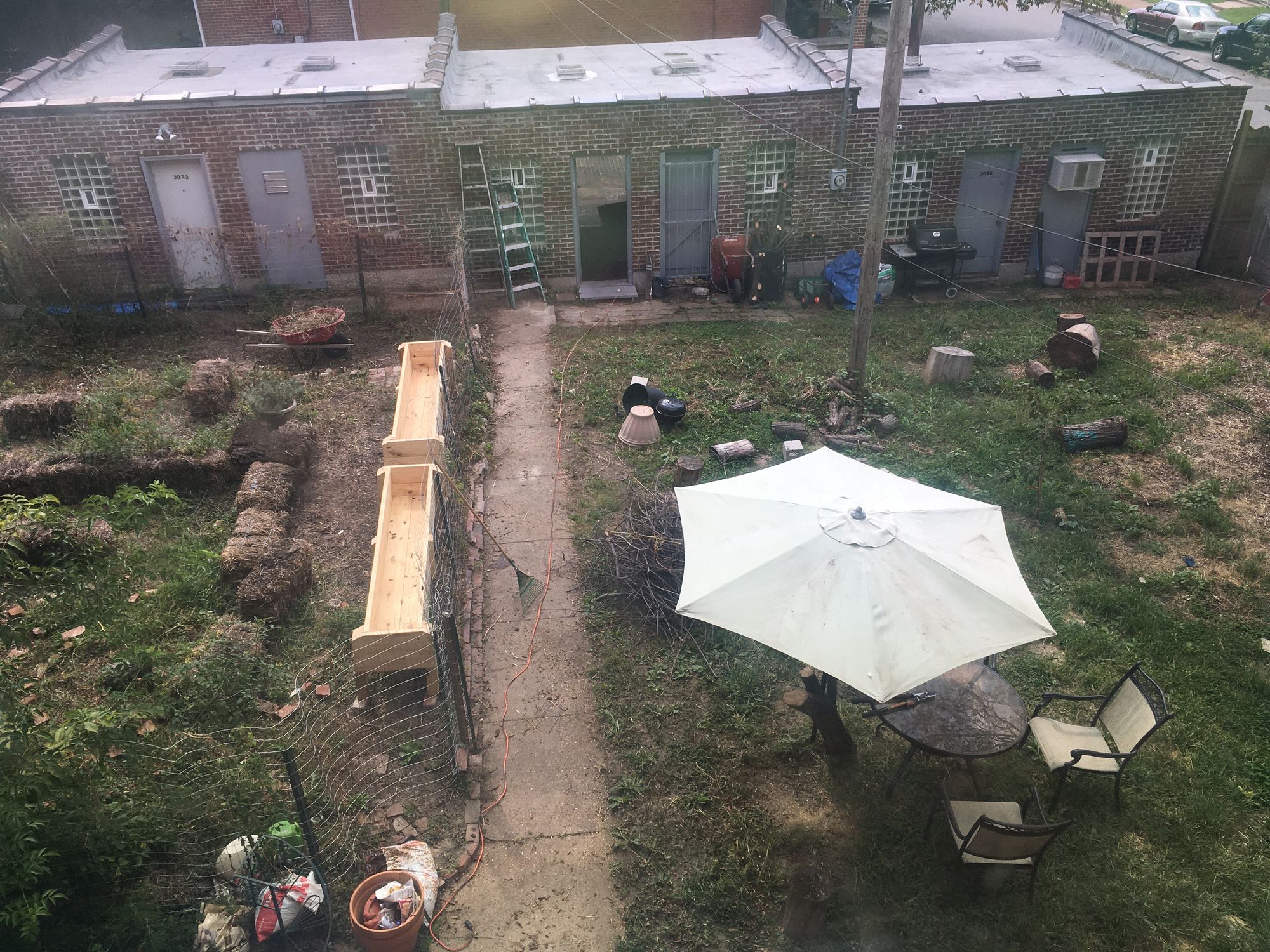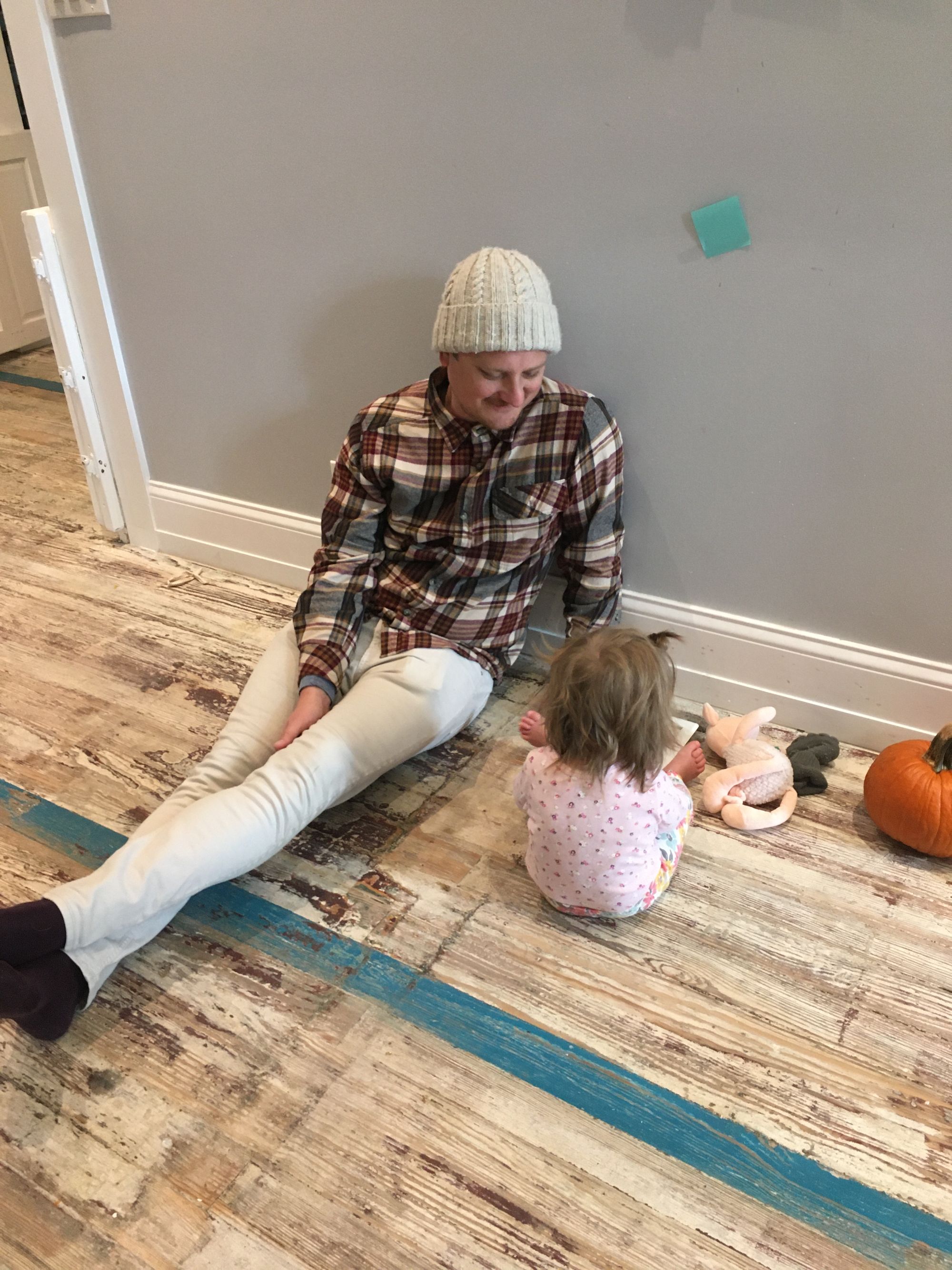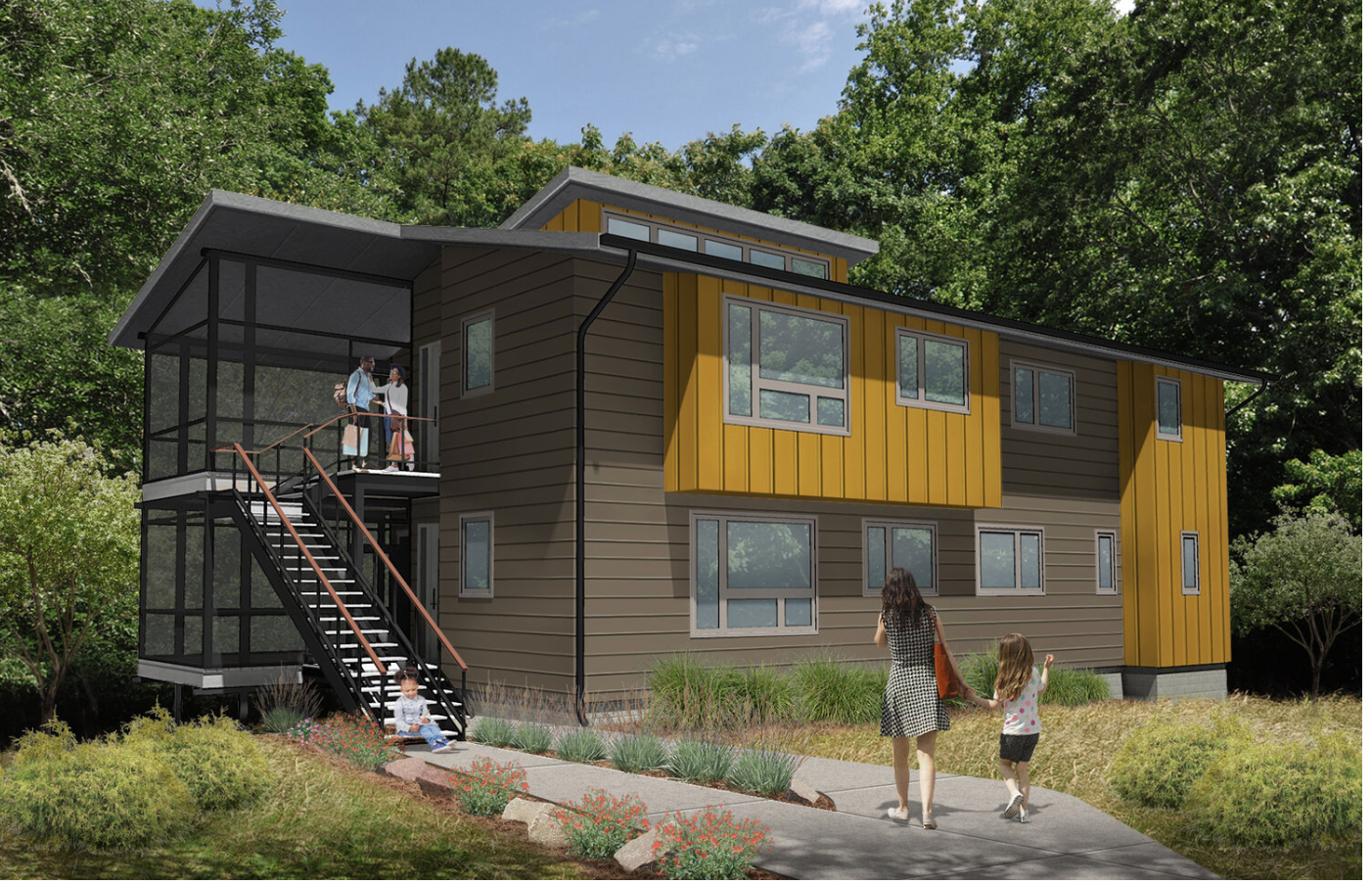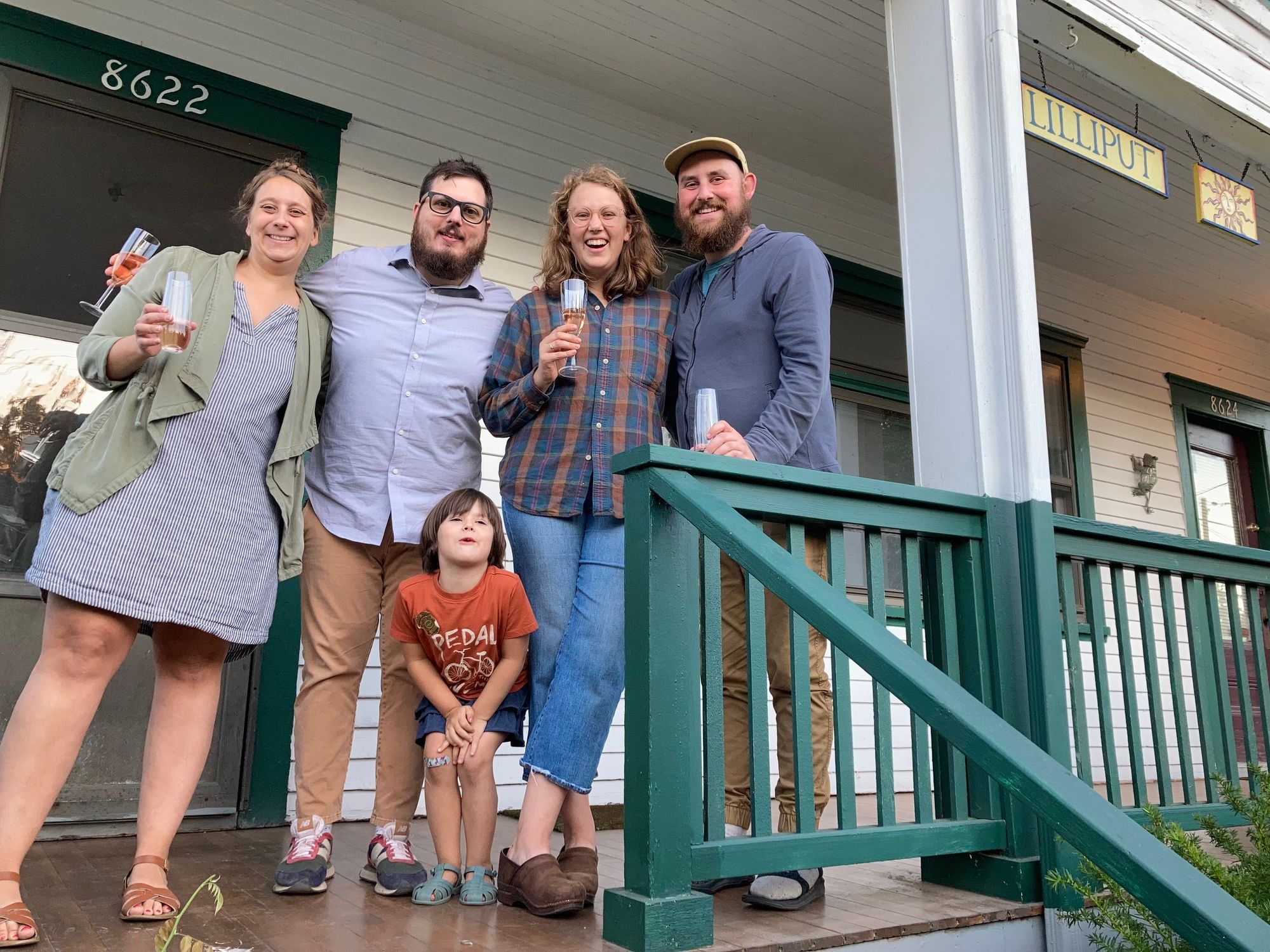Stories From the Frontlines of Intentional Community
I want to start 2023 on a creative and hopeful note and I loved hearing from you all about your living arrangement choices.

If this newsletter means something to you, it would mean so much to me if you became a member. Membership starts at $7/mo. Members get an extra members-only thread every week, an audio newsletter, monthly hangout and other perks.
I want to start 2023 on a creative and hopeful note, so today I’m sharing some stories from Double Shifters on how they’ve created their own intentional communities. I find formal co-housing fascinating. (Did you ever listen to the Double Shift episode that talks about it?) but there are many ways to create community-oriented living situations outside that specific structure.
The pandemic clarified for me how important physical proximity can be for creating strong ties, and that’s definitely a highlight for me of where I live now. We live across the street from my oldest son Asher’s school. You can see Asher’s best friend’s house from our porch, (and we all recently vacationed together in Florida) and my Durham bestie, Dr Liz, lives two and half blocks away. My mother-in-law is about an 8-minute walk down the road. While I don’t think of this as an intentional community per se, it is definitely one that I really appreciate and that we've invested energy into.
Some months ago, I put a callout in the newsletter about your formal and informal intentional communities, and I loved hearing from you all about your living arrangement choices. These three vignettes from Double Shifters have been edited for length and clarity.
Hannah Dreitcer, St Louis, Missouri.
“My husband and I bought a nine unit, three story building in the city of St. Louis three weeks before we got married in 2018. We spent about two years trying to figure out what to do with it. It's still not done, but now we live with our baby and toddler in two units on the second floor that we've turned into one three bedroom, two bath apartment. A single cishet female friend (Mel) lives in the remaining 2nd floor unit with her dog, and a single cishet male friend (Bryce) lives above her in a 3rd floor unit with his two dogs and cat.
On the first floor, we have one unit used by a collective of Catholic priestesses (they are awesome). We are planning to turn the middle first floor unit into a small, one bedroom apartment. The final first floor unit was a yoga studio/movement space previously, and we use it as shared common space for the whole building community – we use it for parties, board game nights and ritual meals. We have a giant shared backyard with a communal-ish veggie and herb garden that we all dip in and out of according to time and inclination. The priestesses fairly regularly host rituals and song circles in the backyard. Right now, the others pay rent to us. My husband, Adam and I, would prefer a co-ownership model, however, renting is currently the preference of our community members.
We regularly eat meals together, formally and informally. The residents of the building (Mel, Bryce, our family) eat together in some combination at least once a week (often more!) Since my husband and I both work for pay and struggle to get meals prepared for ourselves and kids. With the priestesses and their families, we try to have a community dinner monthly, and are beginning a new adventure of opening the community dinner up to the wider community, too, which is exciting!
We all love it. We love that we can just run into each other, drop into each other's homes at the last minute, shout out our windows at whoever is in the yard, or even go days without ever seeing each other. It feels like a really fantastic mix of communal and private space. In terms of downsides, there aren’t many, but I admit I yell weekly about the dog shit in the backyard, and there are some conversations that (maddeningly) happen over and over again, and that's just how it goes. Despite these small drawbacks, I don't know how I could ever live in a single-family home after this experience. Our new dream is to start getting other folk to slowly buy the houses and buildings around us so we can just keep expanding this community."


Danielle Brestel, Durham, NC
“I’m the co-founder of Weaving Water, which is an intentional community near the Eno River, in Durham, NC where we encourage people to slow down and connect with family and community in the natural world. We have 21 acres of land, and we will have 24 duplex units and a common building for group activities, common meals, and a movement space. The living spaces will be on about five acres of developed space, so the rest is either gardens or forest. Among the community that has committed to moving in, there's a lot of intentionality in how we work together as a group. We have a consensus-based decision-making process around all of the policies that we create.
The first inkling I had that I might want to investigate co-housing was on my 39th birthday, 7 years ago. I tend to be a person who looks at the glass half empty. I realized that I would go from caring for my child who was seven at the time, to caring for my parents who would be 80 when she, in theory, left the nest. I’m an engineer, and caregiving is not easy for me, so I wanted to think about a multi-generational community that would provide support for me and others.
We started advertising for members about five years ago. At this point, we have finished our site work. So, we've installed all of our utilities and pavement and that sort of thing, and we are getting ready to start vertical construction on our buildings. We hope in about 7 or 8 months, 14 of our duplex units will be ready to move in. We have 10 committed households right now (including my parents) and 6 or 7 more close to making a decision about moving in. I’m paid for 10 hours a week to work on Weaving Water, but I usually spend 15-20 hours a week on it, in addition to talking freelance structural engineering projects.
Probably the most difficult aspect of this is dealing with interpersonal conflict. We are consensus-based, so how we end up navigating conflict in order to live the values that we've created is an ongoing process.”
(Ed Note: Weaving Water is still looking for some more families to complete their community if you want to find out more!)

Marika Zimmerly-Beck, Portland, OR
“Last year we bought a duplex with friends in Portland, OR. They live upstairs and we live downstairs. Both couples were starting to feel ready to buy, but were both thinking we needed to buy out in the suburbs instead of staying in the city like we wanted for cost reasons. This arrangement allowed us to stay in the neighborhood we had been renting in for 8 years and we actually ended up down the street from some friends we already knew from the neighborhood.
We just celebrated a year living in our house. It's been great having other folks to lean on for projects, having a built-in community when something goes wrong, like when our fridge broke over the summer and the soonest we could get a new one delivered was a week later. We went upstairs every morning for half and half for our coffee. We've had a few disagreements about paint colors and have needed to remind our upstairs neighbors to keep it down when we are doing bedtime with the five-year-old. But pretty much it's been amazing.
Our co-owners don't have kids, but they do have a dog and are getting a puppy in a few weeks. We don't want to have pets, but our five-year-old gets the benefits of a dog to hang out with. We all signed a contract that will help when/if we decide to sell and also lays out dispute resolutions pathways. We have a joint house account that we all put the funds for the mortgage, and shared utilities into and pay the bills from there.”
(Ed note: You can follow Marika’s co-owed duplex house-fixing projects on Instagram.)

In tomorrow's members-only thread, I'll ask you to share what kind of community intentionality you bring to where you live. Become a member so you don't miss it.
Things that bring me joy at the start of the year:
Loving Black Single Mothers: Toi Marie, who’s been featured in this newsletter is nurturing an organization is running three powerful UBI initiatives, a Forever Flourishing campaign, where mothers who are invited into this ecosystem receive $30,000 in guaranteed thriving income, a Summer Camp Joy fund of up to $1000 a month for Black single mothers to send their kids to camp, and a Holiday Love program, which is a four-month ecosystem that provides $500 a month to support Black single mothers during the holiday season. I’m supporting her work with a monthly donation.
Check out the Black Birth JoyLine: Created by visionary Kimberly Seals Allers, it features 2-minute clips from the Birthright podcast, as a reminder that joy can exist in Black birth. It's time to get your joy! You can call (844)5 GET-JOY and press 1 to 6 to listen to the audio clips or text "GETJOY" to that number to receive the clips via text. The audio is updated weekly and the JoyLine will run until Feb. 1, 2023.
A viral video that's worth watching: Miley Cyrus and Dolly Parton's medley on NYE.
Make it a new year’s resolution to become a member and come to a hangout. I had so much fun at December’s members-only holiday solidarity hang. We talked mental load, freeing each other any guilt for not doing Elf on the Shelf, and how to let things go in the busiest time of year. I love hanging out with you all! Jan date will be announced soon.

If you value women's intellectual and professional labor, it would mean so much to me if you became a member. Membership starts at $7/mo. It helps this small mom-run business achieve sustainability. Members get an extra members-only thread every week, an audio newsletter, monthly hangout and other perks.
Did someone forward this newsletter to you? Join the mailing list.